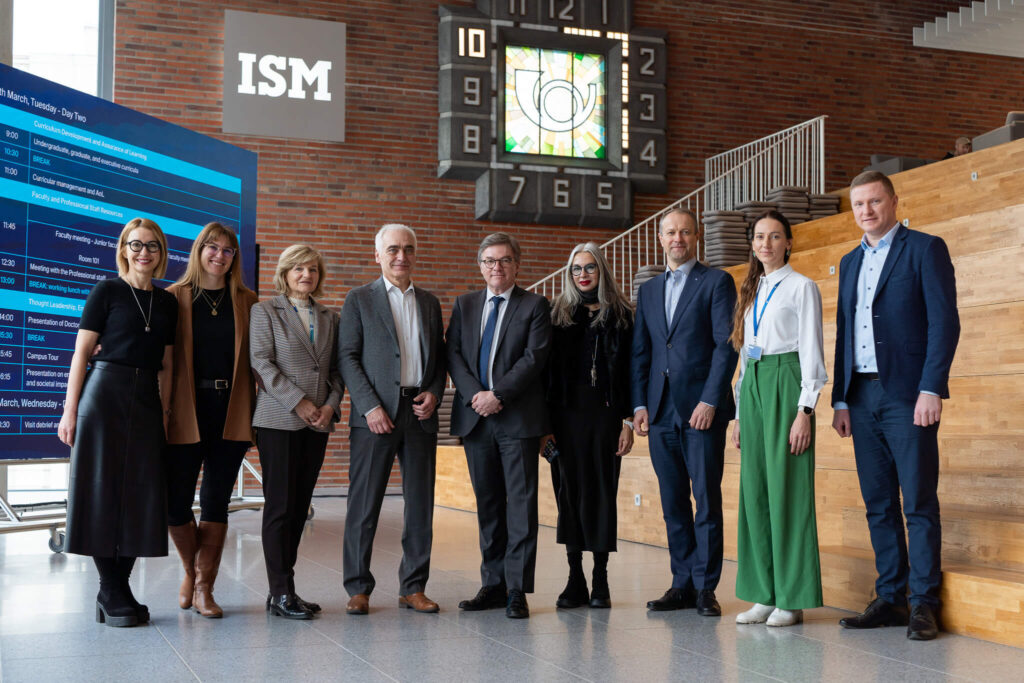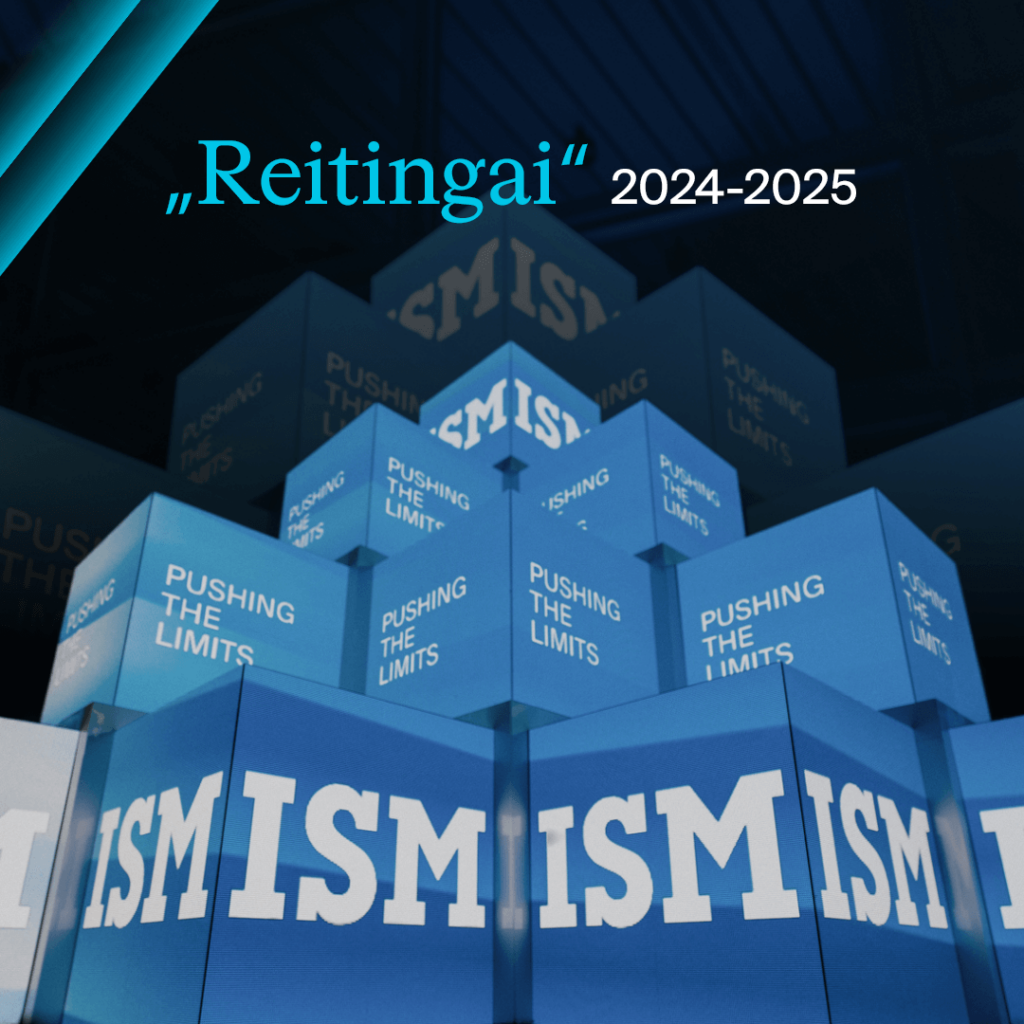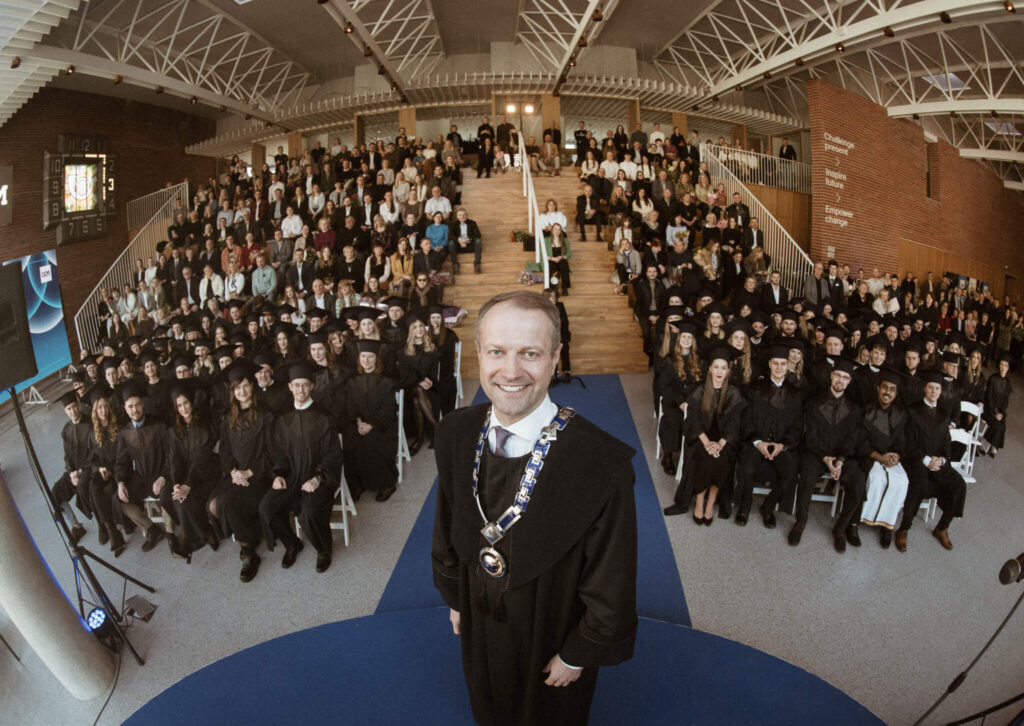Entrepreneurship and Innovation
You will experiment, learn through experience, get acquainted with the world of technology and, most importantly, discover your place in it. After your studies, you will be able to develop a startup or move up the career ladder in a variety of innovative companies.

Get to know the study programme
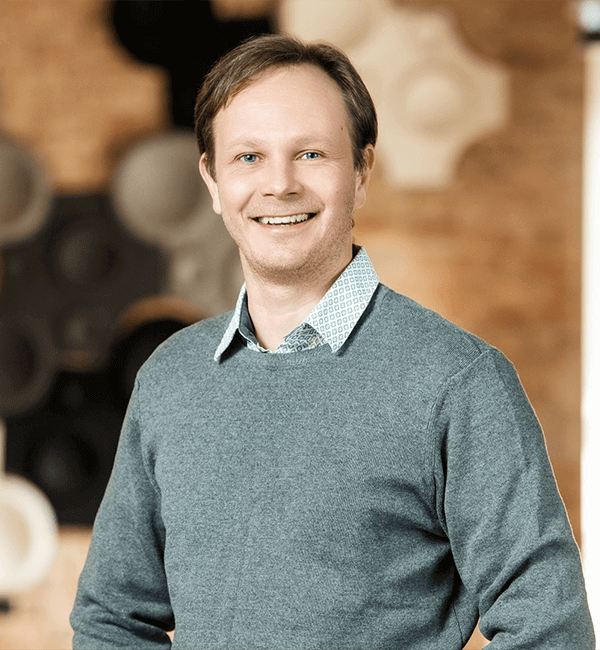

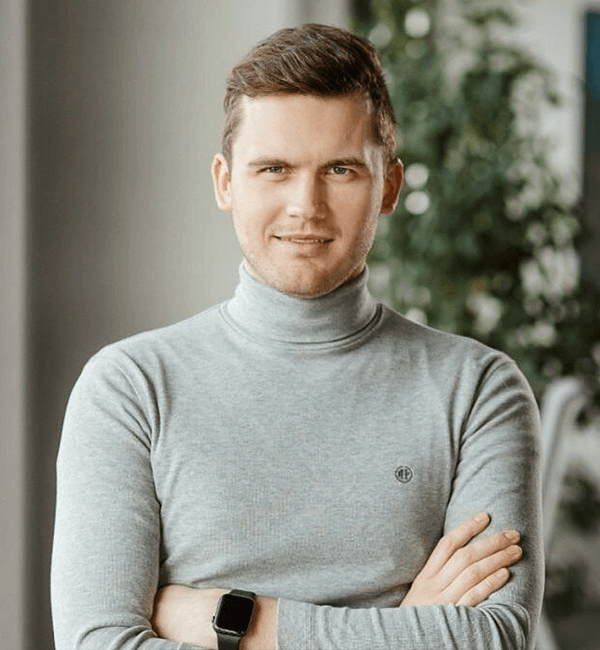





Program structure
What will I learn?
What will I learn?
What will I learn?
What will I learn?
What will I learn?
What will I learn?
What can I be?
A Founder of a startup
Marketing Manager
Business Manager
Project manager
Product Manager
Business Consultant
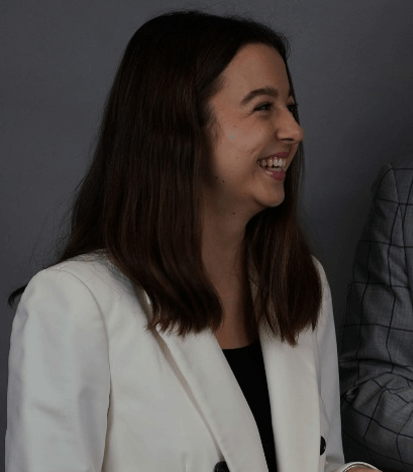
Programme benefits
Opportunities abroad
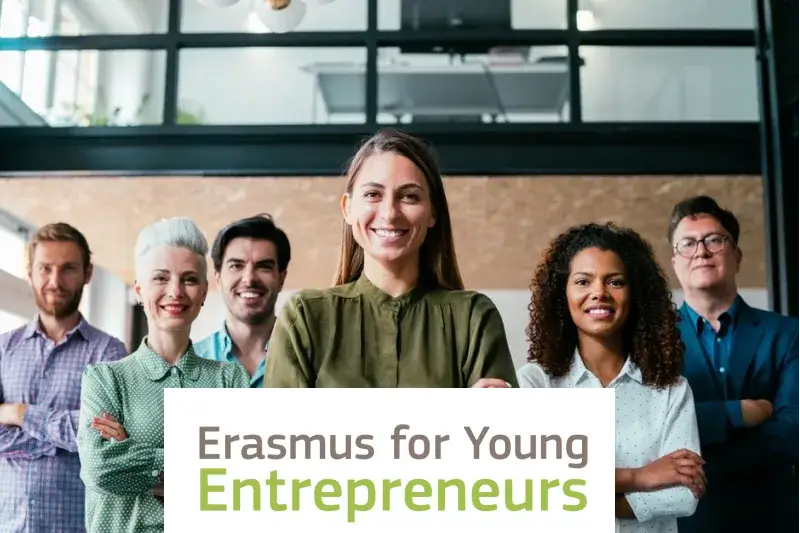
Erasmus for Young Entrepreneurs
Students in the Entrepreneurship and Innovation Program have access to the Erasmus for Young Entrepreneurs international business mentoring program in a selected foreign country and are eligible to receive financial support.Each student in the program will have the opportunity to participate in the international business mentorship program Erasmus for Young Entrepreneurs in a foreign country of their choice and receive financial support for this trip. We are partnering with Change Makers On, one of the providers of this program, and have signed a contract to give all of our students this opportunity.
Students will be able to choose the country and company/host organization or mentor they are going to work with (they will have to meet certain requirements so that we can be sure the student is not going to do only irrelevant minor tasks) and will receive between 600 and 800 euros for flight tickets + 1000 euros for living expenses/month (maximum possible mentorship duration – 3 months).

100+ university exchange partners worldwide
One third of which have at least one prestigious business university accreditation (AACSB, EQUIS, AMBA).How does this work? Each semester you can choose a university that is an ISM partner and participates in the selection. After successfully completing the selection, proceed to the exchange program next semester.
How much does it cost? No extra fees apply. You will pay the usual tuition fee.
How long does it take? The exchange semester lasts about 5 months
What do I have to do to participate in the exchange program? You have to pass the exams – you are permitted to fail only one exam.
News and events
Here we didn’t seek answers – we crafted our own solutions. Such creativity led me to study in South Korea, Japan, and to co-found a successful biotechnology startup.

Price, financing, and admissions
Tuition fees
ISM University charges a tuition fee. The fee is paid every semester. The same price applies both to EU and non EU students.
3720 EUR — Entrepreneurship and Innovation
3190 EUR — Economics and Politics
3190 EUR — Economics and Data Analytics
3190 EUR — Finance
3190 EUR — International Business and Communication
3190 EUR — Business Management and Marketing
Application fee
The application fee is 100 EUR.
It must be paid by transfer to the bank account of the ISM University of Management and Economics, and the receipt certifying the payment must be submitted to the enrolment system. Application fee is non-refundable.
Scholarships
Scholarships are available for all bachelor’s programmes
Best International applicants who will be applying for 2023 September intake can get a scholarship that covers up to 100%* of the tuition fee. Once granted, scholarships will continue to apply in the next semester provided that the student’s average mark is not lower than the average mark of the course and the student has no failures or penalties. Only the best applicants will be granted with scholarships by admission committee decision.
Opportunity to get a SCHOLARSHIP up to 50% (only for early applicants)
Students who apply during the early admission period (November 1 – April 30) can expect to get a scholarship up to 50%. To get a scholarship, students are required to take ISM’s Test, which consists of three parts: English language, Mathematics and Logical Thinking.
Scholarships will be issued by the end of May to those students who:
- Have the highest average grades from school
- Are highly motivated
- Perform well on ISM’s Tests
ISM achievement scholarship
Even more motivation to study well at ISM university! Undergraduate students with the highest grades are awarded an Achievement Scholarship, which covers as much as 25 percent of the annual tuition fees.
The university offers as many as 10 Achievement Scholarships for each course. Scholarships are awarded for academic achievement to those with the highest weighted average in the same course. At the end of the academic year, a competitive queue will be formed based on annual students’ results, according to which the Achievement Scholarships are awarded.
If you have any questions, please contact the International Admissions team by e-mail bs@ism.lt
Admission rules
ISM runs a three-step selection process: fulfillment of eligibility criteria, online interviews, and an online Admissions Tests (for candidates who seek a scholarship).
How to apply?
To begin: Check eligibility
General requirements:
- A secondary school education completed or if you are in your final year at school you need to submit transcript grades;
- State mathematics examination or, if the person has not taken this exam, the ISM mathematics test results.
International applicants, please check your country’s specific requirements here
English language requirements*:
- ISM English test (minimum score of 55);
- TOEFL (minimum score of IBT 60 points);
- IELTS (minimum score of 6);
- Cambridge English test Level B2 Certificate (minimum score of 169);
- PTE Academic (minimum score of 52);
- Duolingo English Test (minimum score of 115);
- International Baccalaureate or European Baccalaureate diploma;
- English state exam result is equal or higher than Level B2 if applicant is from Estonia or Latvia;
*Applicants whose previous education was taught entirely in English may also be exempted from the English language requirement, subject to the decision of the admissions committee.
After the motivational interview, the ISM admission commission reserves the right to request the applicant to take the ISM English language test.
All applicants who fulfill the formal entry requirements are welcome to submit an online application form.
Detailed admission instructions can be found HERE
Investing in studies pays off
Considering studies at ISM?










